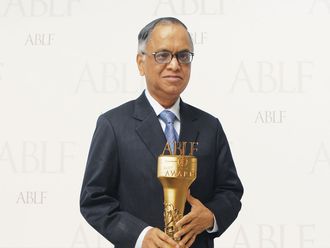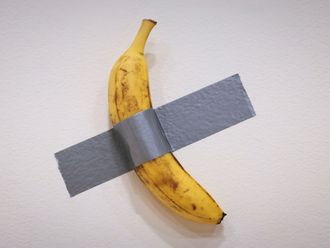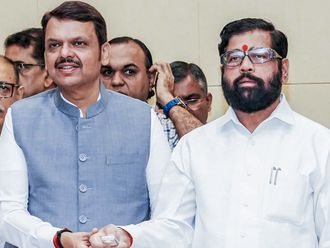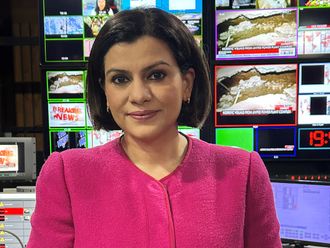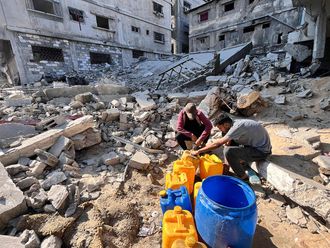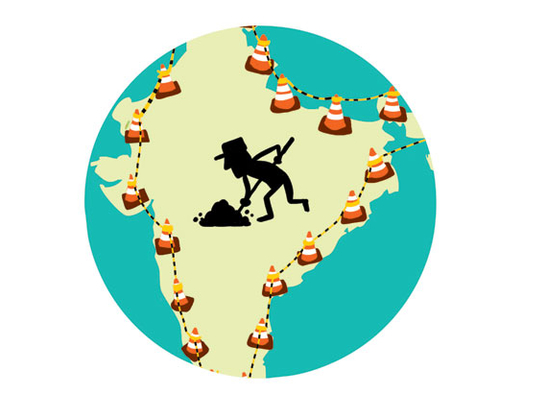
Sixty-three years into its existence as a modern republic, India is still an unnatural experiment. Never before has a single country been fashioned out of as many diverse parts and, more remarkably, never has the vote been given to all adults in a largely poor, illiterate country.
Let us also not forget that few nations were born under more trying circumstances — a brutal vivisection of the subcontinent, called Partition, in the months leading to independence killed over a million Hindus, Muslims and Sikhs and gave birth to a new country, Pakistan.
I wonder sometimes why anyone would want to celebrate the anniversary of one of the world's greatest human tragedies.
In a land of entrenched provincialism and stark diversity, if any one individual can be credited with keeping India together — it would have to be Jawaharlal Nehru, India's first prime minister. With an erudite team at hand, he gave the country a secular and democratic constitution, whose legacy has bound Indians together despite their strong regional loyalties.
Nehru was a curious man — he was a socialist, a constitutional liberal and a sometime disciple of Gandhi. He took from Gandhi the principle that all Indians should live together despite their religious differences.
When taking office 63 years ago, Nehru delivered a powerful midnight speech where he described India's independence as the moment "… when the soul of a nation, long suppressed, finds utterance".
Today's reality is that independent India has thrashed the hopes of the vast majority of its citizens.
If in August 1947, Indians had high hopes for a fresh new start then in August 2010, the prevailing mood among the masses is one of shoulder-shrugging indifference.
Inequality
The uneven spread of economic development has left the poor worse off, and more disenchanted than ever. The newly-rich beneficiaries of economic progress, however, are in a thoroughly self-congratulatory mood. But it is hard to share in their enthusiasm and agree with their favourable comparisons of India with China. It is harder still to digest their proclamations of India's superpower status.
Any talk of India's time ‘having come' is largely premature. There remain very serious problems with Indian democracy and growth. Despite the recent economic surge, there is a widening gulf between haves and have-nots, and serious questions about the environmental sustainability of our path of development.
In my mind, there are three major threats to India today:
Firstly, the threat of religious extremism on the right. Principally Hindu right-wing militias, but also Islamic radicalism to a great extent.
Violence
Secondly, a dangerous and growing Maoist insurgency on the left, which has captured about one-third of Indian territory. They are a revolutionary group of Marxists who seek to bring about a peasant revolution in India.
Thirdly, there is the ever-expanding rich-poor divide. Economic growth is restricted to certain regions and specific classes. Add to this the decay of the Civil Service, India's steel framework, and rampant corruption.
In most parts, the scale of public corruption is almost comical — from Commonwealth Games chief Suresh Kalmadi's improprieties to Telecom Minister A. Raja's brazen billion-dollar scams. I read a joke recently on the modern definition of Indian democracy — ‘one man, one bribe' — and the Indian theory of relativity — ‘everything is for relatives' — which all sounds like an exaggeration, but is really an understatement.
And yes, there are other woes too: the nation's great social ills have not been cured. Infant mortality, illiteracy, educational access and the privations imposed by caste hierarchies are all sixty-three year-old questions that remain unanswered.
There is a long way for India to go before she can fulfil her own democratic aspirations and the ideals of her Constitution. This independence day, India should renew her commitment to deepening her democracy, and spreading the fruits of her economic surge more widely.
This, I believe, is more important than any discussion on foreign policies and economic growth rates. And yet there is one thing I feel like celebrating today and that is the ‘idea of India' — that despite our myriad differences, we are one.
It is a powerful political idea and perhaps the most important thing that we were bequeathed 63 years ago. As another writer has said, "It is an idea that has enemies, within India as well as outside her frontiers, and to celebrate it is also to defend it against its foes."
- Rakesh Mani is a 2009 Teach For India fellow, working with slum schools in Mumbai.



